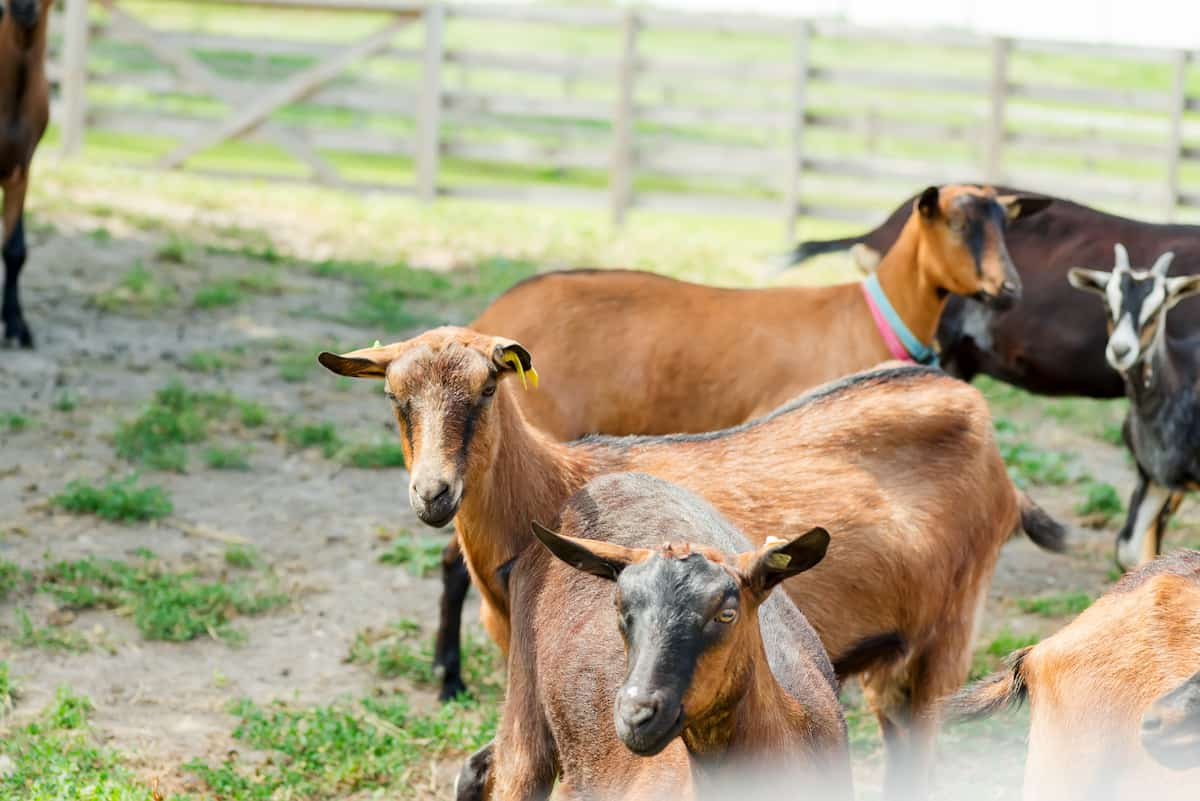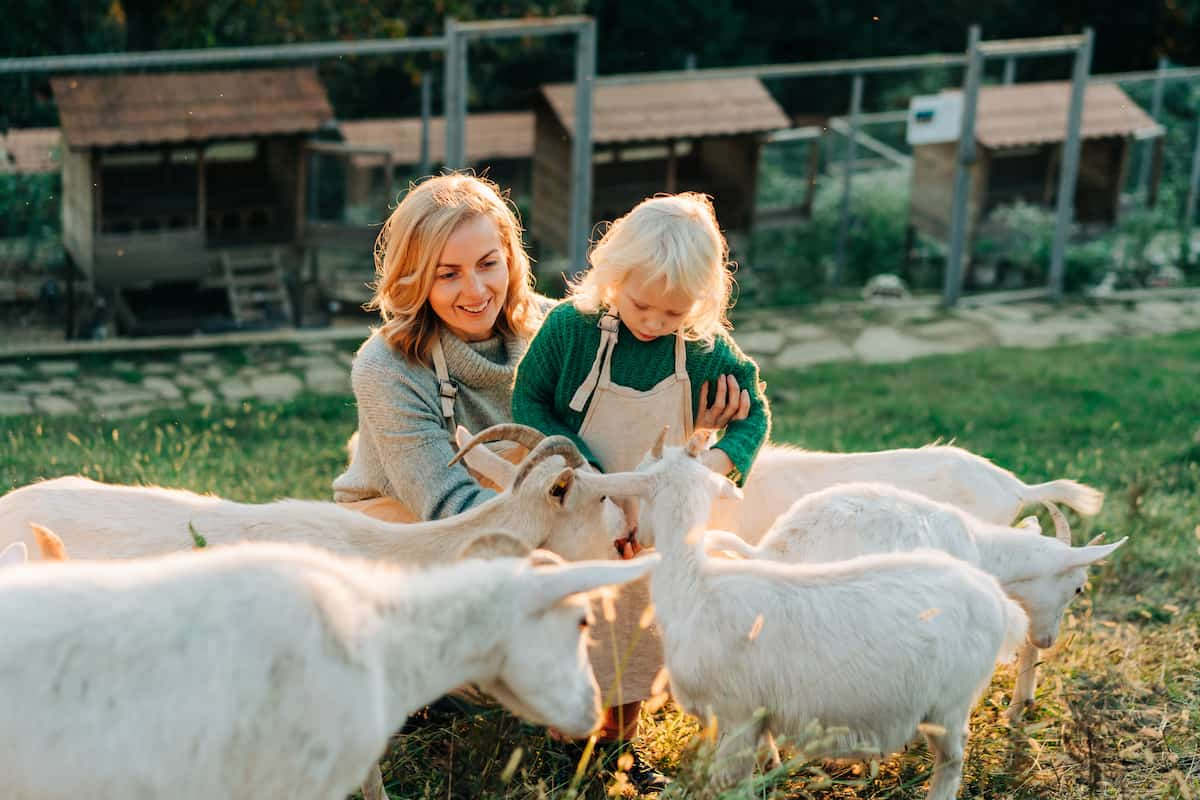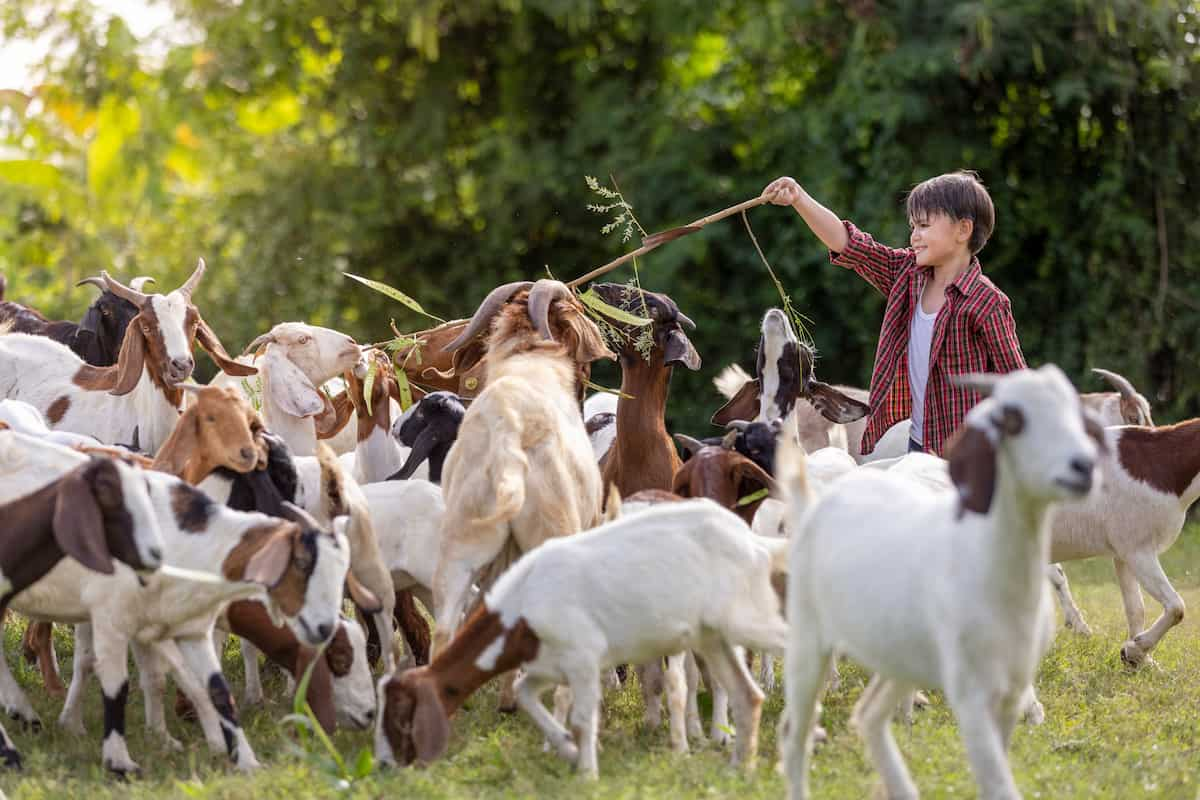Goat farming can be rewarding and profitable for those raising animals for meat, milk, or fiber. However, starting a goat farm requires careful planning and management to ensure the business’s success. Following these steps can establish a successful and sustainable goat farming business.

How to Start Goat Farming in 10 Steps
Research and Develop a Business Plan
Do some market research to see whether you need goat products in your region before you start a goat farming business. This will help you to determine your target market, competitors, and potential revenue for your business. You can develop a business plan that includes your goals, financial projections, and business management strategies based on your research.
Determine the Type of Goats
There are various breeds of goats that you can raise for meat, milk, or fiber. You should research and choose the type of goats that will fit your market and meet your goals. For instance, if you plan to raise goats for meat production, consider Boer goats, while Nubian or Alpine goats are better for milk production.
Secure a Suitable Location
A goat farm needs a suitable location with enough space for grazing and shelter for the goats. You should look for a location with fertile soil, access to water, and good drainage. If you plan to raise goats on a large scale, you may need to purchase or lease land.
Set Up Your Goat Farm Infrastructure and Equipment
Once you have secured a suitable location, setting up your goat farm infrastructure and equipment is next. This includes constructing a barn or shelter for the goats, fencing the grazing area, installing watering and feeding systems, and purchasing the necessary equipment, such as milking machines and shearing tools.
Necessary Permits and Licenses
Before starting your goat farming business, you must obtain the necessary permits and licenses from your local government. This may include a business license, zoning permit, or animal husbandry permit. You should consult with your local government to determine your area’s specific requirements.
Purchase Your Goat Stock
After determining the type of goats to raise, you can purchase your goat stock. You should look for healthy goats that have been vaccinated and tested for any diseases. You can purchase goats from local breeders, auctions, or online marketplaces.
Feeding and Breeding Plan
To ensure the health and productivity of your goats, you need to develop a feeding plan that meets their nutritional needs. You can consult a veterinarian or an animal nutritionist about developing a feeding plan for your goats. Additionally, you should develop a breeding plan to ensure the growth and sustainability of your goat herd.
In case you missed it: Top 10 Goat Diseases: Symptoms, Causes, Prevention, and Control

Care for Your Goats
Caring for goats in commercial production involves several key aspects to ensure optimal health, productivity, and profitability of your herd. Proper nutrition is essential, and goats should have access to clean water, good-quality forage, and a balanced diet that meets their specific nutritional requirements. Housing and facilities should be designed to provide a comfortable and safe environment, with adequate ventilation, lighting, and space for the number of goats in your herd.
Good management practices, such as regular health checks, record-keeping, and biosecurity measures, can help prevent and manage common health issues. Having a breeding and reproduction plan and managing the kidding process is also important. Overall, successful goat farming in commercial production requires attention to detail, consistency, and a commitment to providing the best care for your goats.
Hire Employees
Depending on the size of your goat farm, you may need to hire employees to assist you with the daily operations. Alternatively, you can manage your goat farm if it is a small-scale operation.
Market and Sell Your Goat Products
Finally, you need to market and sell your goat products. This includes developing a marketing plan that reaches your target market and identifies the most effective marketing channels, such as social media or local farmers’ markets. You should also establish relationships with local restaurants or retailers to sell your goat products.
In case you missed it: Top 5 Government Goat Farming Subsidy Schemes in India

It’s also important to consider the quality of the land and the availability of water sources when determining the area required for a goat farm. Ultimately, it’s best to consult a local agriculture extension agent or a goat farming expert to determine the optimal land area required for your specific goat farming operation.
Conclusion
In conclusion, starting a goat farming business can be a profitable and rewarding venture with careful planning, management, and care. The ten key steps discussed above provide a comprehensive guide to help you get started in this industry. Consistency, persistence, and patience are also critical for the success of your goat farming business.
- Feed Your Flock for Less: Top 10 Tips to Save on Chicken Feed
- Ultimate Guide to Ossabaw Island Hog: Breeding, Raising, Diet, and Care
- Hatching Answers: The Top 10 Reasons Your Chickens Aren’t Laying Eggs
- Eggs and Economics: Breaking Down the Cost of Raising Backyard Chickens
- Defend Your Greens: Proven Methods to Keep Iguanas Out of Your Garden
- Ultimate Guide to Cinnamon Queen Chicken: A Comprehensive Guide for Beginners
- Ultimate Guide to California Tan Chicken: Breeding, Raising, Diet, Egg-Production and Care
- Ultimate Guide to Marsh Daisy Chicken: Breeding, Raising, Diet, and Care
- 10 Types of Chicken Farming Businesses You Can Start for Profits